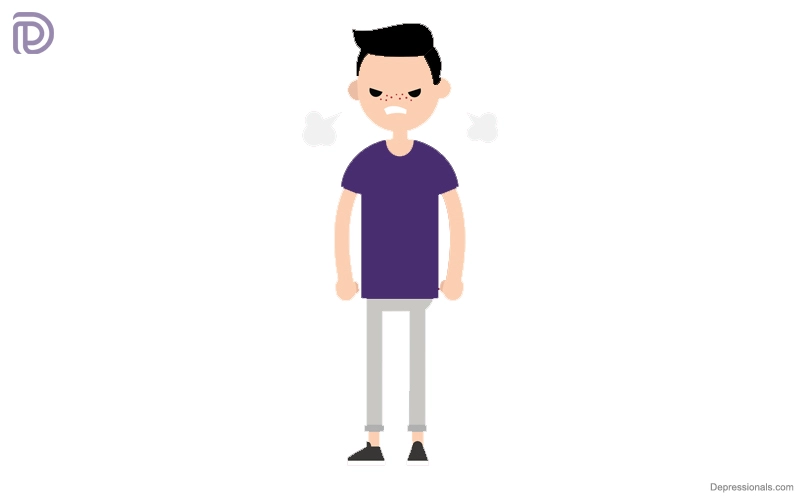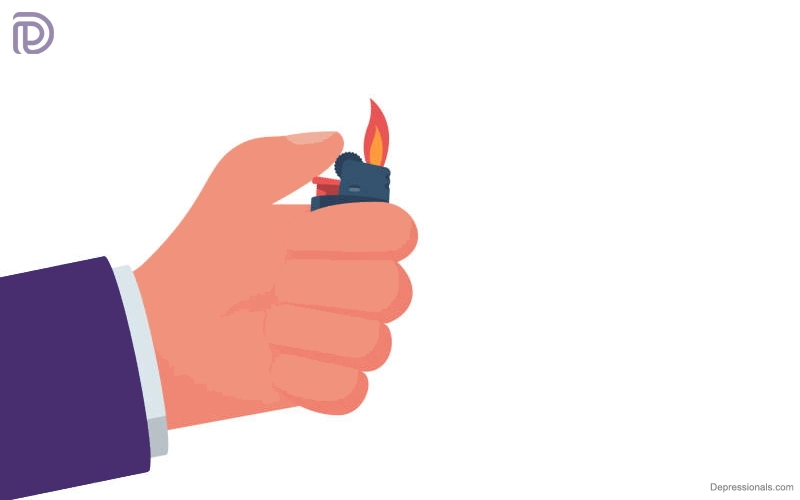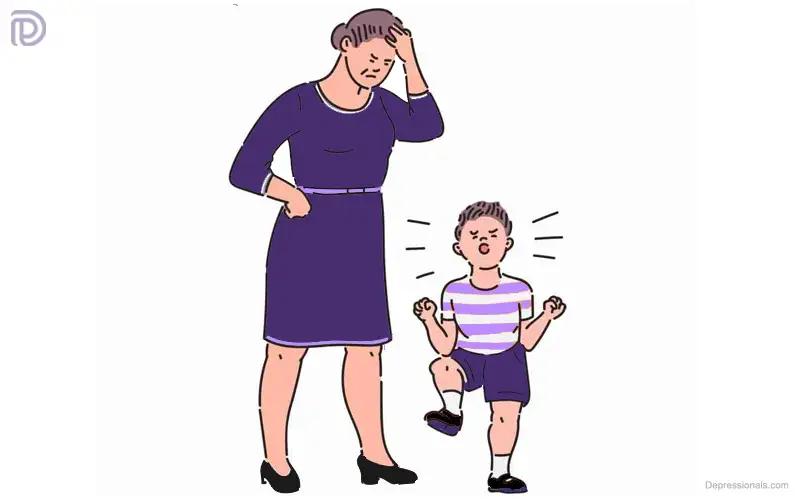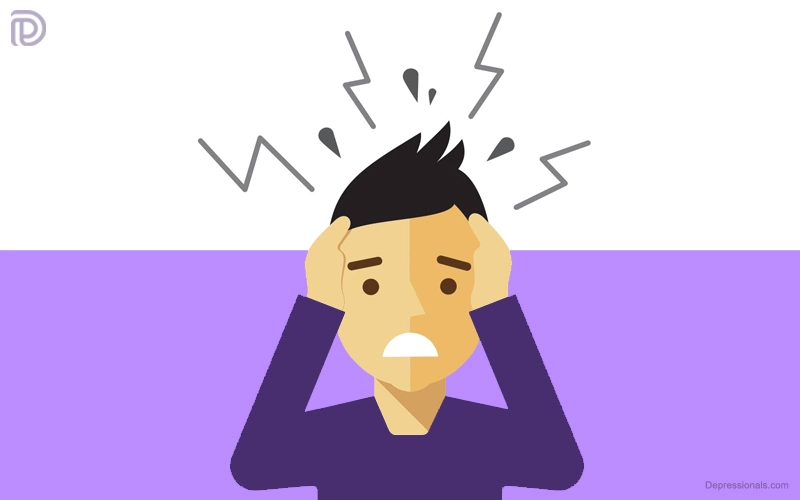Kleptomania is the condition of having an irresistible urge to steal. Many times people steal items that are not needed, that are easily purchased, or that do not have much monetary value. Kleptomaniacs relieve tension by committing theft to relieve tension.
Kleptomania disorder is more common among women than men and usually starts during adolescence. This disorder can make a person more legally vulnerable because stealing is illegal.
The symptoms of kleptomania may lead to arrests, trials and incarceration. Approximately 68% of kleptomaniacs have been arrested for stealing, according to a study in clinical patients. Nearly 20% of these patients were incarcerated because of their crimes.
Read: Pyromania Disorder
Causes of kleptomania
Kleptomania is not well understood, although genetic influences and environmental influences may both play a part. Some possible explanations have been proposed by certain perspectives in psychology:
The Psychoanalytic Approach: Kleptomania disorder is conceptualized in many different ways in psychoanalytic literature. Symbolic compensation for an early loss or neglect may be what drives people to acquire objects. It is believed that treating the disorder entails finding out what drives the behavior.
The Cognitive-Behavioral Approach: The cognitive-behavioral explanation suggests that the disorder begins when someone is rewarded for stealing. It is more likely that the first theft won’t be followed by negative consequences, making it more likely to occur again in the future.
Over time, the cues created by the stealing behaviors become very strong, which increases its likelihood of being repeated. People may feel the overwhelming urge to steal when confronted with similar environmental cues.
Stealing relieves the individual of the stress and tension they were experiencing, so it also comes to be associated with a stress reliever. The individual may steal as a method to cope with and relieve stress over time.
The Biological Approach: The behavioral pattern may be the result of the dysregulation of certain neurotransmitters or specific regions of the brain. Several studies suggest that frontal lobe dysfunction contributes to kleptomania. Two published reports described the emergence of kleptomania-related behaviors following blunt trauma to the frontal lobe, which was followed by physical and behavioral symptoms, including dizziness and anxiety.
There has also been a research showing that SSRIs can be effective in treating kleptomania, suggesting that serotonin regulation may be involved.
The development of the disorder may also be affected by neurotransmitters such as dopamine and endogenous opiates.
Read: Intermittent Explosive Disorder
Signs and Symptoms of kleptomania
Kleptomania is a mental disorder characterized by a persistent urge to steal based on the diagnostic criteria in the DSM-5 published by the American Psychiatric Association. An individual with this condition feels anxiety and tension before committing a theft that is subsequently released after the theft is committed. Taking something causes feelings of pleasure, gratification and relief.
It is possible that the theft relieved the individual’s stress, but the victim may still feel guilty and remorse following the crime. When someone steals, they may feel ashamed and remorseful.
Kleptomania involves no theft for personal gain. The items they steal are not stolen because they want them or because they are coveting them. Additionally, the thefts aren’t related to financial problems. There may not be any value to the items themselves.
People suffering from kleptomania disorder may stash their items away, never to look at them again or use them. Some people give away stolen items as gifts to family and friends, or even return them to the place where they originated.
People with this condition may feel tempted to steal in public places such as a mall or supermarket when the urge strikes. They usually do not plan intricately and this tendency occurs spontaneously without much thought. There are different levels of intensity of these urges. Those who suffer from this condition often avoid shoplifting when it is likely they will be discovered, such as when store employees or police are present.
Could it be anything else?
Kleptomania is different from normal shoplifting since shoplifters typically plan their thefts and steal to get items they want but can’t afford. In contrast, individuals suffering from kleptomania steal spontaneously to relieve the tension that builds up in their minds as they wait.
Stealing disorder often occurs along with other conditions, but it can also occur alone. Substance abuse and anxiety are common problems associated with this condition, as well as impulse control disorders. Kleptomania can also be caused by these disorders:
- Mood disorders
- Panic disorder
- Separation anxiety disorder
- Body dysmorphic disorder
- Obsessive compulsive disorder
- Other impulse control disorders
There is also evidence that this stealing disorder is associated with substance and alcohol abuse. Some experts suggest that substance use disorders and kleptomania may have a genetic link.
According to research, 72 percent of people with kleptomania will also be diagnosed at some point with an affective disorder. There is also evidence of a high co-morbidity between schizophrenia and anxiety disorders, bipolar disorders and eating disorders.
A combination of paranoid personality disorder and histrionic personality disorder is the most frequently found co-occurring personality disorder with kleptomania.
For kleptomania to be diagnosed, it’s necessary to demonstrate that there is no other psychiatric disorder that can explain the symptoms, such as conduct disorder or antisocial personality disorder.
Read: Oppositional Defiant Disorder
Diagnosis
Kleptomania is generally diagnosed by a doctor or mental health professional. Due to its frequent co-occurrence with eating disorders, substance abuse and anxiety disorders, kleptomania is often diagnosed when it is referred for a diagnosis in conjunction with comorbid psychiatric symptoms. It is also possible for an arrest for stealing to lead to a diagnosis of kleptomania.
If medical doctors find that a patient needs further evaluation, they may refer them to a psychologist or psychiatrist. Patients may be interviewed and legal records may be reviewed to diagnose. The Yale-Brown Obsessive Compulsive Scale, Modified for Kleptomania (K-YBOCS) or Kleptomania Symptom Assessment Scale (K-SAS) can also be administered.
Stealing in children vs. in adults
Kleptomania in children
Even though it can be unsettling for parents, it is not uncommon for young children to take small items without knowing better. Under the age of five, children tend to take things that make them excited. You can teach your young child that stealing is wrong when you see them stealing.
Several reasons may lead to older children stealing, and it is seldom a matter of necessity. It’s not uncommon for older children to steal to impress their peers to show courage or wit. There are times when they act out or do it to attract attention.
When stealing occurs repeatedly in older children, it can indicate behavioral or emotional development problems, according to the American Academy of Child & Adolescent Psychiatry. Such problems can be triggered by either a home life in turmoil or a genetic factor. Stealing issues in children often lead to difficulty trusting others, and children with these issues may blame others for their behaviors.
Read: Global Developmental Delay
Kleptomania in adults
There are many different reasons why adults steal compared to children. The main reason adults steal is to meet financial needs. The majority of theft is committed for financial reasons.
Adults sometimes steal because they feel entitled to it. It is an extremely common type of theft to take boxes of tissues, plush robes (and even mattress pads) from hotels, or staplers from your workplace. Some people may feel they have earned their hotel room by paying enough or by working hard enough.
Stealing is also a symptom of Kleptomania among adults. Often, small and insignificant items are stolen, items the person stealing them does not need. The person who steals often regrets it greatly afterward, as it is indicative of an impulse control disorder.
Treatment for kleptomania
It is extremely difficult to treat Kleptomania alone, so most people who have it require medical attention. In most cases, psychotherapy and medications are used to treat depression, which can target causes and triggers.
The most common treatment for kleptomania is cognitive-behavioral therapy. You will learn how to stop detrimental behaviors and address the cognitive factors that underlie them when you receive this kind of treatment. Some strategies your therapist might utilize include:
- Systematic desensitization: This method involves learning relaxation techniques to control the desire to steal
- Covert sensitization: This involves imagining that you are accused of stealing and that you will be arrested.
There is medication available to treat related mood or mental health disorders, such as depression or obsessive-compulsive disorder. An addiction medication that balances opioids will balance the brain chemistry that triggers the urge to steal. A selective serotonin reuptake inhibitor is another option.
There is no cure for kleptomania, but it can be treated. Kleptomaniac relapses can be prevented by continual treatment and caution. Make an appointment with your therapist or support group right away if you’re experiencing urges to steal after being in treatment for a while.
Read: Developmental Coordination Disorder
Complications
Kleptomania can cause serious emotional, work, family, and financial problems if left untreated. When you feel powerless to resist the impulse to steal, you know it is wrong. Therefore, you may experience guilt, shame, self-hatred, and humiliation. Stealing may lead to your arrest. Your compulsive stealing may cause confusion and upset in a law-abiding person.
Kleptomania may also be associated with the following complications or conditions:
- Gambling and shopping addictions are other impulse-control disorders
- Alcohol or other substance abuse
- Personality disorders
- Eating disorders
- Depression
- Bipolar disorder
- Anxiety disorders
- Suicidal thoughts and behaviors
Prevention
There is no certainty about how kleptomania can be prevented since the causes are unclear. Kleptomania can be prevented from becoming worse and some of its consequences may be prevented by seeking treatment as soon as it begins.
Bottom line
Psychiatric disorders such as kleptomania may negatively affect a person’s ability to function and their quality of life. People who are caught stealing can not only suffer significant distress, but they may also suffer serious legal consequences. Those who suffer from kleptomania are not uncommonly arrested, incarcerated, and faced with legal fees.
Fortunately, it is possible to take steps to help someone with kleptomania. When you receive proper treatment, you can learn to cope with your urges and replace negative actions with more helpful ones. You should consult with your physician or a mental health professional if you suspect you might have kleptomania to determine the treatment plan that is best suited to your needs.






I like what you guys are up too. Such clever work and reporting! Carry on the excellent works guys I have incorporated you guys to my blogroll. I think it’ll improve the value of my website 🙂
These kind of post are always inspiring and I prefer to check out quality content so I happy to finally find many excellent point here in the post, writing is simply great, thank you for the post
These kind of post are always inspiring and I prefer to check out quality content so I happy to finally find many excellent point here in the post, writing is simply great, thank you for the post
Good! I should certainly pronounce, impressed with your site. I had no trouble navigating through all tabs as well as related information ended up being truly easy to do to access. I recently found what I hoped for before you know it in the least. Reasonably unusual. Is likely to appreciate it for those who add forums or something, web site theme . a tones way for your client to communicate. Nice task..
The information you have provided is very useful to me.